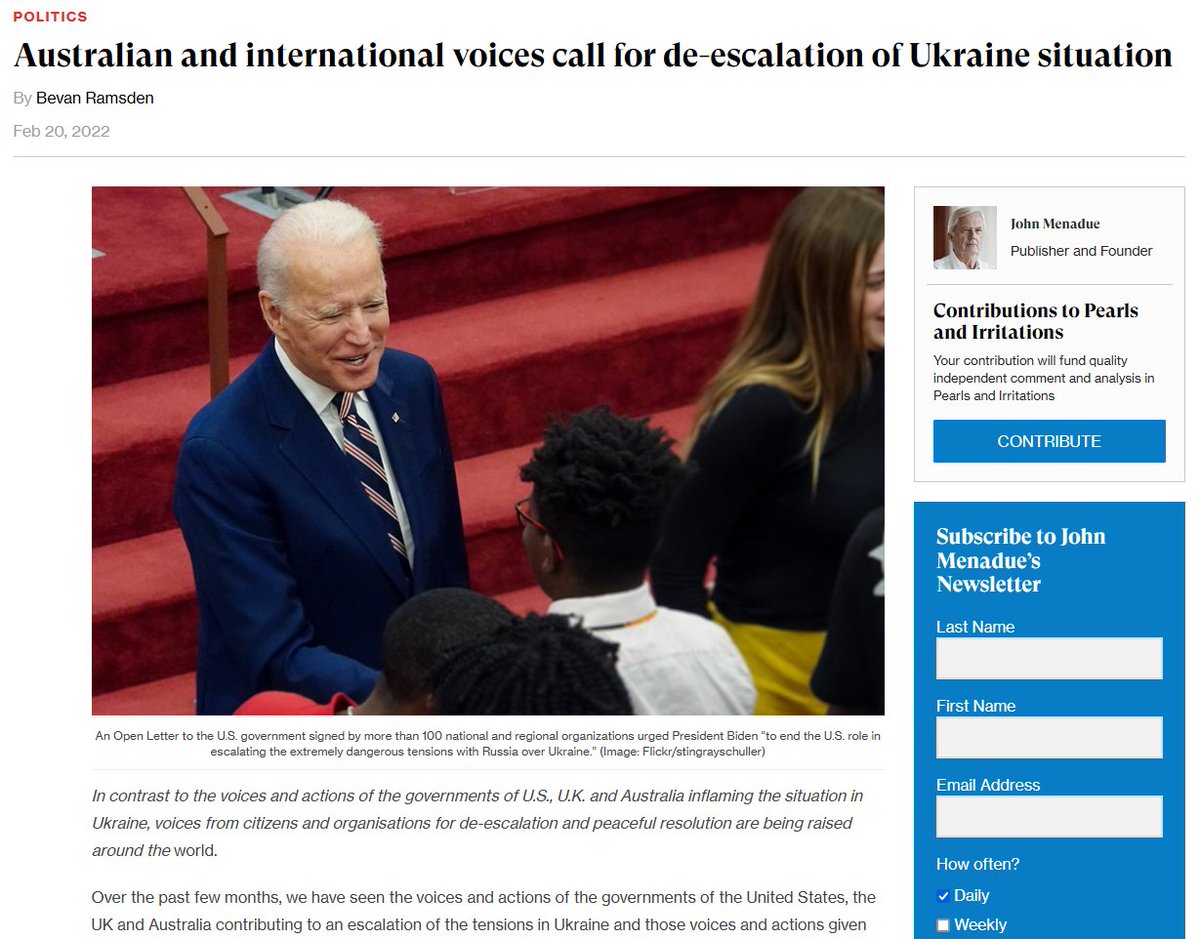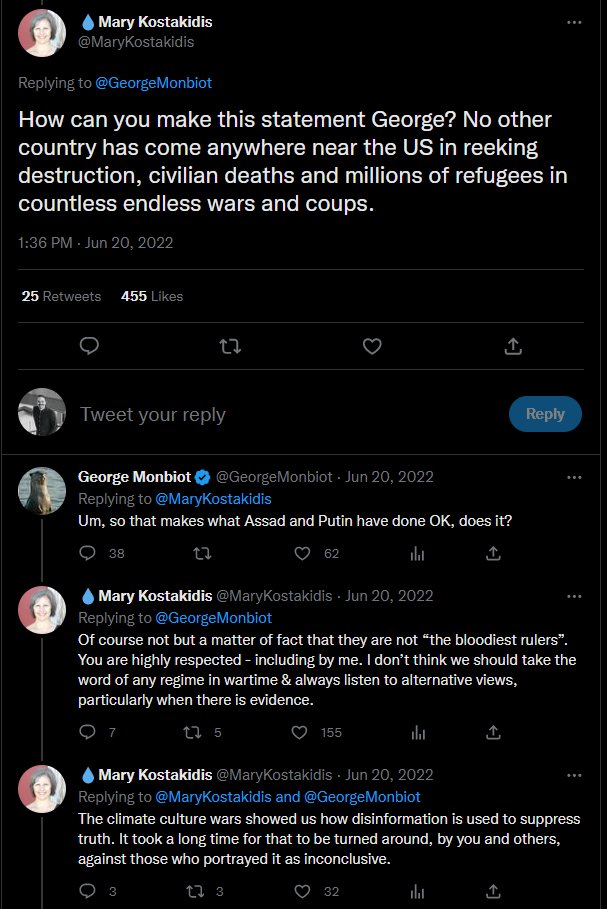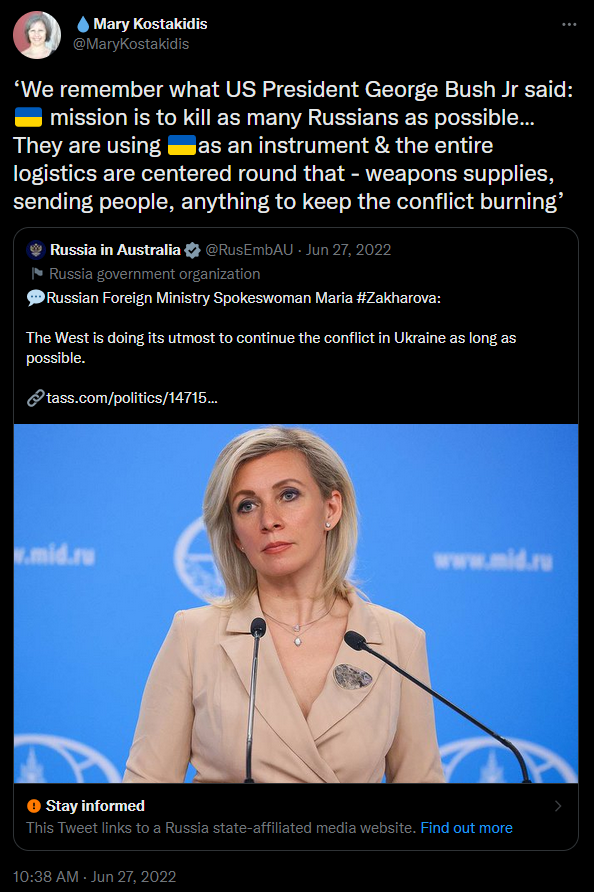In today's #vatnik soup I'll be introducing an Australian propagandist and ex-news reporter, Mary Kostakidis (@MaryKostakidis). She's best known for her storming out from the SBS newsroom in 2007, after which she's been mostly doing hot takes on the US & NATO, Russia & China.1/11 

Mary was setting up the SBS Television in the early 80s, and presented World News on the channel until 2007. In Aug, 2007, she stormed out of the SBS newsroom, protesting the increase in advertising time during the program and never looked back.
2/11
2/11

She's a former Chair of the Sydney Peace Foundation, a non-profit that's associated with the University of Sydney. They present the annual "Sydney Peace Prize", and some of the winners of this trophy include John Pilger and Noam Chomsky.
3/11
3/11

On 20, Feb, 2022, she was one of the signees in an open letter to the Australian government, calling for "US de-escalation" on the situation in Ukraine. The letter stated that "for more than a month now we have been subjected to cries of 'an imminent invasion of ...
4/11
4/11

... Ukraine by Russian forces' by the western press. We have been told that Putin has an invasion plan but no evidence of that has been given. Putin has consistently said that no invasion by Russia is planned or intended."
Russia invaded Ukraine four days later.
5/11
Russia invaded Ukraine four days later.
5/11

Her online presence is mostly on Twitter, where she retweets and comments on most prominent pro-Russian propagandists, including Caitlin Johnstone, Vanessa Beeley, Patrick Lancaster, George Galloway, Eva Bartlett, the Grayzone bloggers and Cameron Leckie.
6/11



6/11




I think that the most unbelievable thing about Kostakidis is that she worked almost thirty years in the newsroom, and today pretty much the only news she quotes come from fake news blogs and disinformation mills, or from paid pro-Russian propagandists.
7/11
7/11
But tweets speak louder than words, so here's some of the gems from her timeline (yes, I went through the thing and yes, it was painful):
8/11

8/11


- Mary celebrates BRICS collaboration with Putin and friends
- Mary shares the made-up story of "genocide in Donbas", as reported by the fake news blog CovertAction Magazine
- Mary shares Russian disinformation with paid actors in Mariupol
9/11


- Mary shares the made-up story of "genocide in Donbas", as reported by the fake news blog CovertAction Magazine
- Mary shares Russian disinformation with paid actors in Mariupol
9/11



Also, she's shared straight-up conspiracy theories about the MH17 plane shot down by the Russians, lies about "thousands of young Ukrainians" being tied to poles and tortured, and of course some high quality TASS propaganda.
11/11


11/11



Support my work (and get some AI art!): buymeacoffee.com/PKallioniemi
Related soups:
Lancaster:
The Grayzone:
George Galloway:
NATO expansion:
Related soups:
Lancaster:
https://twitter.com/P_Kallioniemi/status/1615636752735129605
The Grayzone:
https://twitter.com/P_Kallioniemi/status/1609560497384308736
George Galloway:
https://twitter.com/P_Kallioniemi/status/1615274756151853056
NATO expansion:
https://twitter.com/P_Kallioniemi/status/1616000266352078849
• • •
Missing some Tweet in this thread? You can try to
force a refresh



































